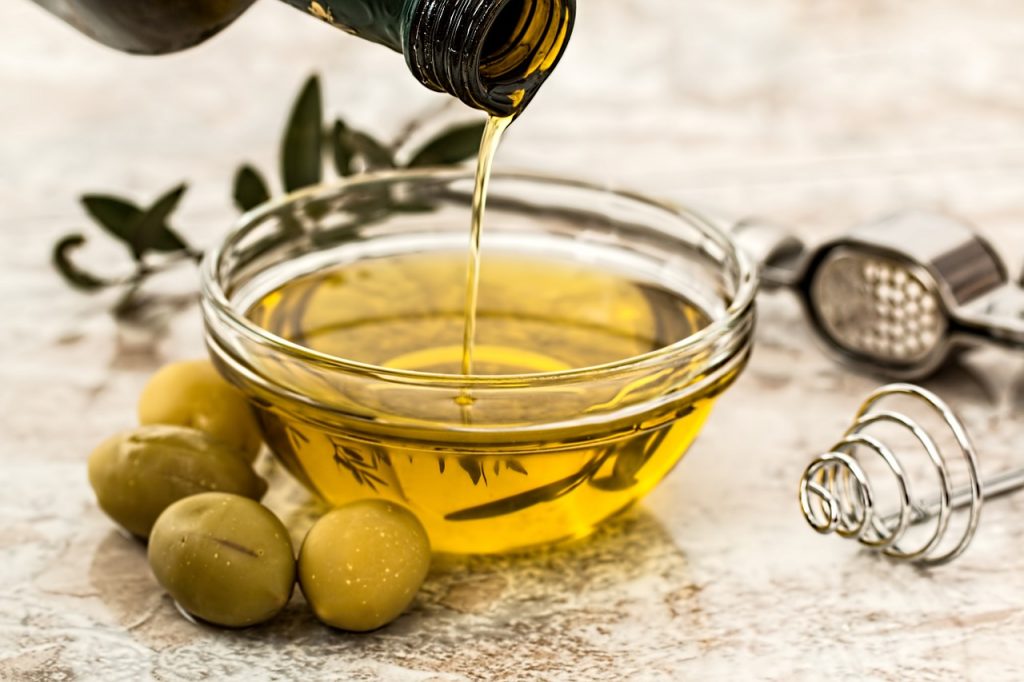When Inflammation Goes Bad
Inflammation is a natural, beneficial process

But inflammation is a funny thing. Sometimes, the body comes to believe that normal healthy tissue is infected or is a foreign object, and then the immune system starts to fight against and destroy that healthy tissue.
This second type of inflammation–when inflammation goes awry–is believed to be involved in many chronic illnesses that plague us today. Heart disease, many cancers, and possibly even diabetes and obesity seem to be due at least in part to the body becoming chronically inflamed.
Fight It With Good Goods
Since inflammation can sometimes trigger these diseases, it seems logical to find ways of keeping low-level, chronic inflammation to a minimum inside our bodies.
Well, luckily, researchers have discovered that certain foods and dietary habits are linked to lowering levels of inflammation. Also, if you are already living with some of the diseases mentioned above, you might want to encourage your body’s healing processes by eating an anti-inflammatory diet.
What Is An Anti-Inflammatory Diet?
Actually, it’s not a diet per se, but a way of eating that, in short, encourages consumption of natural foods instead of packaged ones. Such a diet also calls for eating foods that have been identified by researchers as being able to decrease inflammation–for example, salmon. This fish is naturally high in omega-3 fatty acids, which have turned out to be Mother Nature’s big-time inflammation tamers.
Anti-Inflammatory Diet Tips
You can read about the anti-inflammatory diet in many places, but I’ve been most impressed by the information on Dr. Andrew Weil’s website. I’m going to summarize his main points below.
- Include as many fresh foods as possible, including plenty of fruits and vegetables right out of the garden.
- Try not to eat processed foods and fast foods. Particularly avoid products made with high fructose corn syrup—and please note that the Corn Refiners Association is now calling this non-food “corn sugar.”
- Eat a variety of foods.
- Eat more whole grains like brown rice and bulgur wheat. During the processing of these crops, the grain is kept whole and intact, or is cracked into only a few large pieces.
- Whole-wheat flour is no longer a champion. Products made with it have the same glycemic index as those made with white flour, so whole wheat probably won’t stabilize your blood sugar level as well as, say, brown rice and bulgur.
- Consume more beans, winter squash, and sweet potatoes.
- Decrease your intake of saturated fat. Eat less butter, cream, high-fat cheese, un-skinned chicken, whole milk, and fatty meats, as well as of any products made with palm-kernel oil.
- Use extra-virgin olive oil as your primary cooking oil or, alternatively, expeller-pressed, organic canola oil.
- Also acceptable: organic, high-oleic, expeller-pressed sunflower and safflower oils.
- Avoid the regular types of oils. Regular safflower, canola, sunflower, corn, cottonseed, and mixed vegetable oils are not as nutritious.
- Avoid margarine, shortening, and all products listing them in their ingredients, as well as any products made with partially hydrogenated oils or palm kernel oil.
- Include avocados and nuts in your diet.
- Consume foods high in omega-3-fatty acids, such as salmon (choose wild over farm-raised fish), sardines, herring, black cod, hemp seeds, and flax seeds. (Grind up the seeds first).
- Take fish-oil supplements if you’re not eating oily fish at least twice a week. Dr. Weil recommends buying only “molecularly distilled” products, which are certified free of heavy metals and other contaminants.
- Decrease your consumption of animal protein, except for fish and high-quality, low-fat, natural cheeses and yogurts.
- Eat more vegetable protein, especially from beans in general, and from soybeans in particular. Also look into whole-soy foods, as opposed to foods made with processed soy.
- Drink pure water. (Note: Expensive bottled waters are not only environmentally unsound; they are also not guaranteed to be pure. Look into buying a high-quality water filter.)
- Drink teas instead of coffee, including white, green, or oolong tea.
- If you drink alcohol, red wine is the preferred kind.
- Enjoy (in moderation) plain, dark chocolate that has at least 70-percent cocoa content.
My Thoughts About The Anti-Inflammatory Diet
Dr. Weil’s outline above might sound overwhelming, but if you think about it, it’s really pretty basic:
- Eat natural, unprocessed foods as much as possible.
- Steer clear of saturated fats, particularly animal fats.
- Increase fiber consumption by eating fresh fruits and vegetables.
- Eat more ancient grains, which have the added advantage of being free of gluten, the protein in wheat that can cause serious chronic inflammation in some people.
If you’re a vegan/vegetarian and aren’t eating fish oils of any kind, you can still get the health benefits of omega-3 fatty acids by taking high-quality DHA/EPA supplements. (DHA and EPA are abbreviations for two of the omega-3 fatty acids: docosahaxanoic acid and eicosapentanoic acid, respectively).
Consider adopting at least a few of these tips right now, particularly if your diet doesn’t incorporate many anti-inflammatory practices. Then gradually begin to add other foods and strategies that appeal to you. See if such a diet helps you feel better overall.
Of course, always check with your doctor before starting or changing supplements. This includes the omega-3 supplements, which are natural blood thinners, or might otherwise be inappropriate for some people.
Article Source: https://EzineArticles.com/expert/Yemliha_Toker/2112329
Share This Story
More Stories

Virginia Beach Is One Of The Best Cities For Commuters In 2022
We here in Hampton Roads can talk at length about tribulations caused by rush hour 264, or by congestion at our many tunnels and bridges. But what about the financial impact traffic has?
Most Read
More Stories
Development Authority Discusses Plans For Innovation Park Anchor Building
The Hampton Inn By Hilton would be a 120 room...
Construction Begins on Norfolk’s New Casino
Plans include a 200-room hotel, a casino floor featuring 1,500...

Development Authority Discusses Plans For Innovation Park Anchor Building
The Hampton Inn By Hilton would be a 120 room hotel next to Central Park and the Zeiders playhouse.

Filming For Pharrell Williams Project ‘Atlantis’ To Soon Begin
According to the bill, the program will ensure that every registered child…

Virginia Beach Is The Safest Big City In The Country Again
Virginia Beach is again the safest big city in the country, according to a study by researchers at personal finance company MoneyGeek.

Newport News To Replace Grissom Library
Newport News City Council voted last week to spend nearly $40 million…

What Is She-Crab Soup?
On offer in every seafood place in the area, but what exactly is it?




